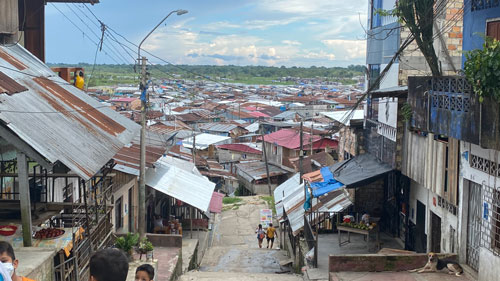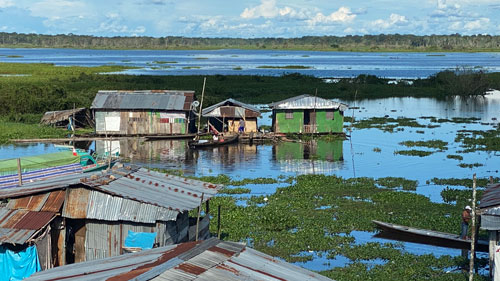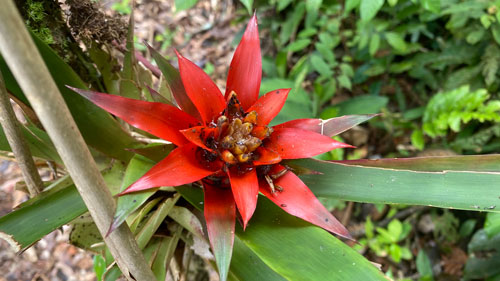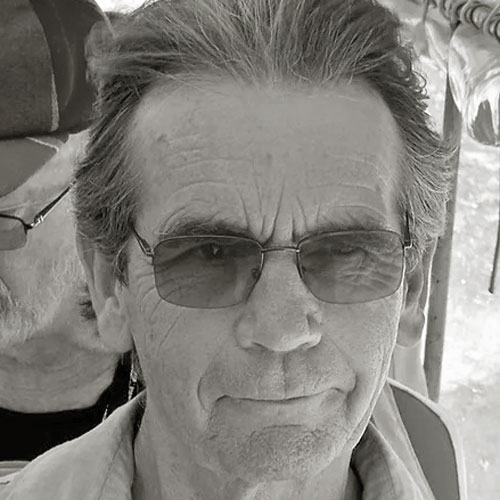Why Amazonia?
by Michael J. Maki
December 19, 2021

Like many rural areas in the world, Amazonia, the region around the Amazon River which flows through nine countries including Brazil, Ecuador, Venezuela, Suriname, Peru, Columbia, Bolivia, Guyana and French Guiana, has seen the displacement of many people from river communities to rough and impoverished cities like Iquitos, a land-locked Peruvian jungle city of nearly half million people. Why do people leave a seemingly idyllic river village life? Simply put: economic opportunity, or at least the illusion of it. Most recently, an historic flood in 2012 sent thousands of people from hundreds of villages to Iquitos, where they have constructed extensive shantytowns at the outskirts of the city, instant ghettos with minimal amenities and all the problems that come with such crowded living conditions. Previously and elsewhere in Peru, the violence of the late 1980s through 1990s by the brutal Sendero Luminoso guerrilla movement led hundreds of thousands of rural Peruvians to Lima, where the barrios still struggle to survive, while the countryside awaits their return, if only appropriate economic opportunity can be developed.
So what is to be done? Coming from a subsistence basis, the agricultural life of the Amazon Basin does not resemble farming as we usually recognize it, much more resembling what we have come to call permaculture and its more market-oriented elder cousin agroforestry, the integration of annual and perennial food crops into small scale polyculture (the practice of growing more than one crop species in the same space, at the same time) systems. Through this kind of adapted approach, people can have a variety of foods for their own nourishment, as well as crops to sell in local and regional markets, thus fulfilling their cash needs. Additionally, there is great potential in growing medicinal plants for market in agroforestry type settings, scaling up and developing more sophisticated production, processing, and marketing elements. Using existing regional institutional infrastructure, as well as efficiently utilized NGO resources, people can pick up where programs like the American Peace Corps once found limited success.

But are their efforts sustainable? The word sustainability can be parsed in several ways. Existing industries like logging and petroleum, two existing Amazonian enterprises, can muddle along, employing a few people, kind of sustainably, at least for the time being. Hunting, fishing, and slash-and-burn agriculture, the current dominant ways of rural life, can also keep on keeping on. But to establish a market-facing, innovative, but culturally comprehensible, integrated economy, from modest investment but yielding optimum rural benefits, requires understanding the limitations of the people and the environment. Herein lies the potential and promise of rural economic development in this (and many other) regions.
Amazonian and other tribally originating people are naturally collaborative, but competition between individuals is also an aspect of all societies. In Peru and elsewhere, socialistic governmental approaches have brought both benefit and boondoggles, while exploitive private enterprise has resulted in environmental impoverishment and social dysfunction. Well-meaning NGOs have brought many benefits to the people here, but often lack the requisite cultural insights or, to use the word in yet another context, genuine sustainability. There needs to be facilitated indigenous ownership and multi-level (NGO/governmental) cooperation to build lasting enterprises that truly serve the needs of the people and help them form a vision for themselves and their families in the 21st century.
The good news is that we have some excellent working models, a contemporary conscious supply chain for product export, and a shared desire to build inclusive and successful enterprises.

One economic goal of the Schultes Center for Amazonian Ethnobotanical Research (RESCAER) is to identify medicinal plants that can be scaled into commercial production through adapted cultivation techniques. This involves doing comparative analysis of candidate plant species previously gathered along with additional specimens to be collected from their natural and semi-cultivated habitats. We are evaluating these plants for potential utility and then developing specific best practices for further cultivation. In other words, this is the conscious development of a diversified jungle agriculture, always careful to use available folk knowledge and feedback from the rural folks from whom we get our leads.
The provision of fair trade markets (export and domestic) for sustainably produced plant materials will draw farmers in to share in the economic opportunities. Value-added processing will be facilitated by RESCAER and its affiliate, Pharmazonia, the goal being to train local people to own and operate successful plant-based enterprises.
Further, the nearly lost knowledge about the soil-building and sustaining capabilities of terra preta (https://www.youtube.com/watch?v=0Os-ujelkgw) which once supported large populations in the otherwise poor tropical Amazonian soils, can restore and sustain tropical agriculture in Amazonia and elsewhere, utilizing terra preta’s modern technical equivalent, biochar (https://biochar-international.org/).
With adequate funding, The Schultes Center intends a multi-pronged effort to assist Amazonia and all its peoples in a sustainable, flourishing environment that will ultimately help support the health of the entire planet.
